
Find Help
More Items From Ergsy search
-

How long does a common cold typically last?
Relevance: 100%
-

What are the common symptoms of a cold?
Relevance: 100%
-

How to Treat a Common Cold
Relevance: 95%
-

How long do cold sores last?
Relevance: 87%
-

Are cold sores contagious?
Relevance: 77%
-

Can cold weather cause a cold?
Relevance: 76%
-

Is Vitamin C effective against colds?
Relevance: 76%
-

Is there a cure for cold sores?
Relevance: 74%
-

Is there a way to cure a cold quickly?
Relevance: 73%
-
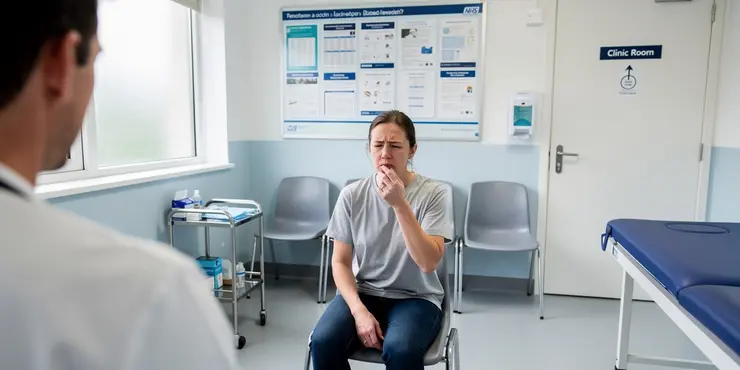
What are the symptoms of a cold sore?
Relevance: 72%
-

What causes cold sores?
Relevance: 72%
-

How to treat a cold | NHS
Relevance: 71%
-
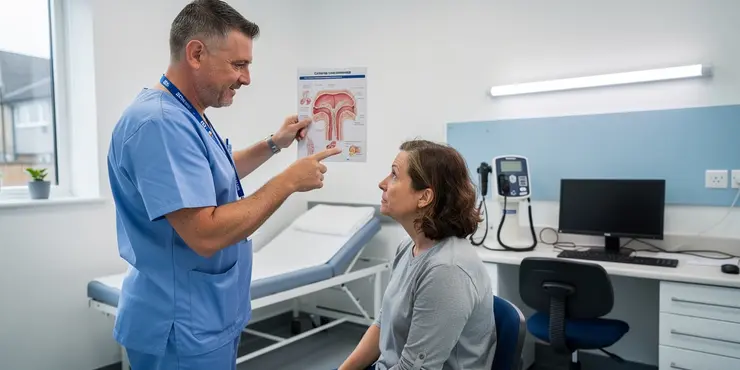
What are Cold Sores?
Relevance: 70%
-

Should I see a doctor for a cold?
Relevance: 69%
-
Can orange juice help prevent colds?
Relevance: 68%
-
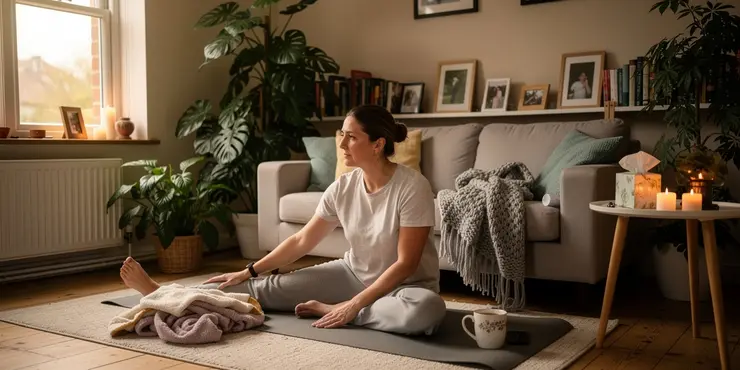
Is it safe to exercise with a cold?
Relevance: 67%
-

Can I take antibiotics for a cold?
Relevance: 67%
-
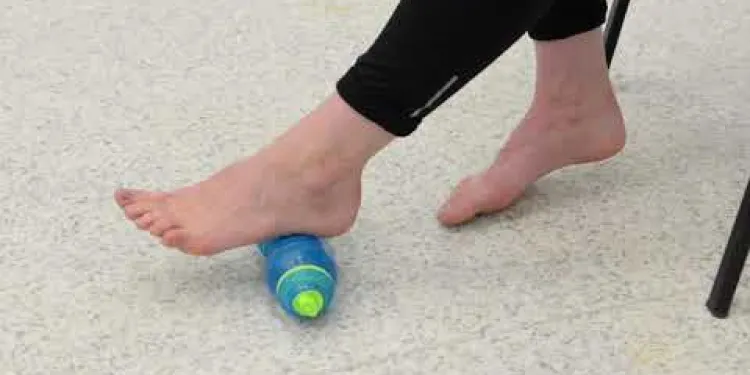
Plantar Fascia Cold Therapy
Relevance: 66%
-
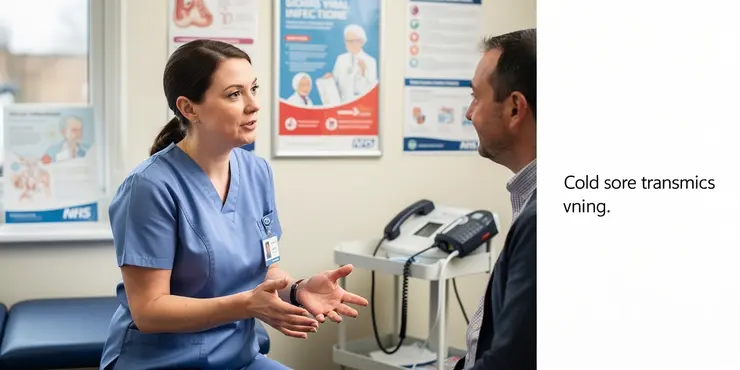
How are cold sores transmitted?
Relevance: 65%
-

What triggers a cold sore outbreak?
Relevance: 63%
-

What is the typical duration a nicotine pouch should be used?
Relevance: 62%
-

How do I treat my child's cold? (9 - 30 months) | NHS
Relevance: 62%
-

How can I prevent cold sores?
Relevance: 62%
-

How can I treat a cold at home?
Relevance: 62%
-

What is the typical duration of a promotional balance transfer offer?
Relevance: 61%
-

What should you do if you have a cough or cold?
Relevance: 60%
-

Can I use a humidifier to help with my cold symptoms?
Relevance: 59%
-

Is it safe to take cold showers during a heatwave?
Relevance: 58%
-

Honey 'as good as antiviral creams' for cold sores | NHS Behind the Headlines
Relevance: 58%
-

Can children take the same cold medications as adults?
Relevance: 56%
-

Is it okay to use ice packs or cold showers to cool down?
Relevance: 55%
-

What is the typical duration of property litigation?
Relevance: 53%
-

How can I prevent spreading my cold to others?
Relevance: 53%
-

Dealing with Common Childhood Illnesses
Relevance: 53%
-

Can I receive the Warm Home Discount and Cold Weather Payment?
Relevance: 53%
-

What is the best way to treat a sore throat from a cold?
Relevance: 49%
-

What is a common use of paracetamol?
Relevance: 48%
-

What are the common symptoms of asthma?
Relevance: 45%
-
What are common symptoms of menopause?
Relevance: 39%
-
Is tinnitus a common condition?
Relevance: 39%
Understanding the Duration of a Common Cold
Typical Duration of a Common Cold
The common cold is a viral infection that primarily affects the nose and throat. Although it is a prevalent ailment, especially during the colder months in the United Kingdom, it typically resolves on its own. On average, a common cold lasts around 7 to 10 days. However, the duration can vary depending on the individual’s immune system and overall health.
Stages and Symptoms Over Time
In the initial stages, individuals generally experience a sore throat and a runny nose. These early symptoms appear within the first two days after exposure to the virus. By the third to fifth day, symptoms may progress to include nasal congestion, cough, and sometimes mild headache or fatigue. As the body combats the virus, these symptoms usually start to diminish between the seventh and tenth day.
Factors Influencing Cold Duration
Several factors can influence how long a cold lasts. Smokers or people with respiratory issues may find their symptoms persist longer due to irritated airways. Additionally, stress and lack of sleep can weaken the immune system, potentially extending the duration of a cold. A healthy lifestyle, including adequate rest and hydration, can help speed up recovery.
When to Seek Medical Advice
While most colds resolve without medical intervention, it is important to monitor symptoms. If symptoms worsen or persist beyond two weeks, or if there are severe symptoms such as high fever, chest pain, or difficulty breathing, it is advisable to consult a healthcare professional. These symptoms could indicate complications or other illnesses that may require medical attention.
Prevention and Management in the UK
To prevent the spread of colds in the UK, practicing good hygiene is crucial. Regular handwashing and avoiding close contact with infected individuals can reduce the risk of catching or spreading the virus. For symptom relief, over-the-counter medications, rest, and increased fluid intake can aid in managing discomfort until the cold passes.
Understanding How Long a Common Cold Lasts
How Long Does a Common Cold Last?
A common cold is a sickness caused by a virus. It mostly affects your nose and throat. Lots of people get colds, especially in the cold months in the UK. Usually, a cold goes away by itself. Most colds last about 7 to 10 days, but it can be different for each person. This depends on how strong their body's defense system is.
How Cold Symptoms Develop Over Time
At the start of a cold, you might have a sore throat and a runny nose. These start in the first two days after getting the virus. By days three to five, you might have a stuffy nose, a cough, and feel tired. Your body fights the virus, and these symptoms often get better by days seven to ten.
What Makes a Cold Last Longer?
Some things can make a cold last longer. People who smoke or have breathing problems may have symptoms for a longer time. If you are stressed or not sleeping well, it can also slow down getting better. Living a healthy life, getting lots of sleep, and drinking plenty of water can help you recover faster.
When to Talk to a Doctor
Most of the time, colds get better without seeing a doctor. But it's important to watch your symptoms. See a doctor if your symptoms get worse, last more than two weeks, or if you have a very high fever, chest pain, or trouble breathing. These could be signs of other problems that need a doctor's help.
Stopping and Handling Colds in the UK
To stop colds from spreading in the UK, good hygiene is very important. This means washing your hands often and staying away from others who are sick. To feel better from a cold, you can take medicines from the shop, rest, and drink lots of fluids. These can help you feel more comfortable until the cold is gone.
Frequently Asked Questions
How long does a common cold typically last?
A common cold usually lasts about 7 to 10 days. Some symptoms might linger a bit longer in some cases.
Are there any effective treatments to shorten the duration of a cold?
There is no cure for the common cold and no specific treatments to shorten its duration, but symptoms can be managed with rest, hydration, and over-the-counter remedies.
What are the early signs of a common cold?
Early signs of a cold can include a sore throat, runny nose, sneezing, and coughing.
When should I see a doctor for a cold?
You should see a doctor if your cold symptoms persist beyond two weeks, worsen, or if you develop a high fever, shortness of breath, or chest pain.
What is the best way to prevent catching a cold?
To prevent catching a cold, wash your hands frequently, avoid close contact with sick individuals, and maintain a healthy lifestyle to strengthen your immune system.
Can cold weather cause a cold?
Cold weather itself doesn’t cause a cold, but the virus spreads more easily during colder months when people spend more time indoors.
Is it safe to exercise when you have a cold?
Mild to moderate physical activity is usually fine if you have common cold symptoms, but it's best to rest if you have a fever, fatigue, or muscle aches.
Are antibiotics effective against colds?
No, antibiotics are not effective against colds, which are caused by viruses, whereas antibiotics are only effective against bacterial infections.
Can supplements like vitamin C or zinc prevent or cure a cold?
There is no conclusive evidence that vitamin C or zinc can prevent or cure a cold, though some people find them helpful in reducing the severity of symptoms.
Should I stay home from work or school if I have a cold?
It is advisable to stay home to rest and to minimise the spread of the virus to others, especially during the first few days when the cold is most contagious.
How are cold symptoms different from flu symptoms?
Cold symptoms are generally milder and include a runny nose and sore throat, while flu symptoms are more severe and can include high fever, body aches, and fatigue.
Can you catch a cold from going outside with wet hair?
No, going outside with wet hair doesn’t cause a cold; colds are caused by viruses. However, being cold can stress your body and make you more susceptible to infections.
How does the common cold virus spread?
The common cold virus spreads through droplets in the air when an infected person coughs or sneezes, and also by touching surfaces contaminated with the virus.
What home remedies can help soothe a cold?
Home remedies that may help soothe cold symptoms include drinking warm fluids like tea or soup, using a humidifier, and resting.
Can gargling salt water help with a cold?
Gargling salt water might help soothe a sore throat, which is a common symptom of a cold, but it will not cure the cold itself.
How long does a cold last?
A cold usually gets better in about 1 to 2 weeks. To feel better, you can: - Rest a lot - Drink warm drinks - Use tissues to blow your nose If it's hard to read, you can: - Ask someone to help you read - Use pictures to help understand - Listen to someone read it aloudA cold usually lasts for 7 to 10 days. Sometimes, some signs of a cold might stay a little longer.
Can anything help a cold get better faster?
Here are some tips to feel better:
- Rest a lot. Sleep helps you heal.
- Drink water or juice. This keeps you strong.
- Stay warm. Wear cozy clothes.
- Eat healthy food. It gives you energy.
- Wash your hands. This stops spreading germs.
Helpful tools:
- Use tissues for your nose.
- Try a humidifier to breathe better.
- Use a thermometer to check your temperature.
- Ask an adult for medicine if you have a fever.
If you feel really sick, you should see a doctor.
You can't make a cold go away completely, and there is no special medicine to make it end faster. But you can feel better by resting, drinking lots of water, and using medicine you can buy at the store.
What happens when you start to get a cold?
When you catch a cold, your body might show some signs. Here are some things to watch out for:
- You might start sneezing a lot.
- Your throat could feel sore or scratchy.
- You might have a runny or stuffy nose.
- You could feel more tired than usual.
- Sometimes, you might even get a mild headache.
To help you feel better, you can:
- Rest: Try to get plenty of sleep.
- Drink: Have lots of water or warm drinks.
- Stay Warm: Keep cozy with a blanket or sweater.
When you start to get a cold, you might feel these things:
- Your throat might hurt.
- Your nose might be runny.
- You might sneeze a lot.
- You might cough.
If you feel like this, rest a lot, drink water, and maybe ask for help if you need it.
When should I go to the doctor for a cold?
You have a cold when your nose is runny, and you cough and sneeze. Most colds get better in a few days. But sometimes, you need to see a doctor.
See a doctor if:
- You have a fever for more than 3 days.
- Your cough doesn't get better after a week.
- You have trouble breathing.
- You feel worse instead of better.
To feel better, rest a lot, drink water, and ask an adult for help. You can use a timer to remind you when to take medicine.
Go to the doctor if your cold lasts more than two weeks, gets worse, or if you feel really sick with things like a high fever, trouble breathing, or chest pain.
How can I stop getting a cold?
To stop getting a cold, wash your hands often. Stay away from people who are sick. Eat healthy food and stay active to help your body fight germs.
Can you catch a cold from cold weather?
Cold weather doesn't make you catch a cold. But the cold can help the cold virus spread. This is because people stay inside more when it's cold.
Can you do exercise if you have a cold?
When you have a cold, you might wonder if it's okay to exercise.
Here are some tips:
- If you only have a runny nose, it's usually okay to do light exercise, like walking.
- If you have a fever or feel very tired, you should rest and not do exercise.
- Listen to your body. If you feel worse after starting to exercise, stop and rest.
If you are not sure, ask a doctor or nurse for advice.
If you have a simple cold, you can do some light exercise. But if you have a fever, feel very tired, or your muscles hurt, it's better to rest.
Do antibiotics help when you have a cold?
No, antibiotics do not help with colds. Colds are caused by viruses, and antibiotics only kill bacteria.
If you have a cold, try these things to feel better:
- Rest a lot.
- Drink water, soup, or juice.
- Use a warm blanket if you feel cold.
- Avoid smoking or smoky places.
If you need more help, talk to a doctor or a nurse. They can give you advice on what to do.
No, antibiotics do not help with colds. Colds are caused by viruses. Antibiotics only work against bacteria.
Do vitamins like C or zinc stop or fix a cold?
We don't have strong proof that vitamin C or zinc can stop a cold or make it go away. But some people think these can help make a cold less bad.
Should I stay home if I have a cold?
If you have a cold, it might make you feel sick. When you are sick, it is often best to rest at home. This helps you get better and stops others from getting sick too.
Tell someone who looks after you, like a parent or teacher, how you feel. They can help decide if you should stay home.
Remember, washing hands often and using tissues can help keep colds from spreading.
It's a good idea to stay at home. Resting helps you get better. Staying home also stops the virus from spreading to others. This is very important, especially in the first few days when you can give the cold to others easily.
What is the difference between a cold and the flu?
When you feel unwell, it could be a cold or the flu. They have some of the same signs but are different. A cold is usually milder than the flu. The flu can make you feel very sick.
Here are some signs of a cold:
- A runny or stuffy nose
- Sneezing
- A sore throat
- Sometimes a mild cough
Here are some signs of the flu:
- A fever (feeling very hot)
- Body aches (you feel sore all over)
- Feeling very tired
- A dry cough
If you are unsure which one you have, ask a grown-up you trust or a doctor for help. A doctor can help you feel better.
When you have a cold, you might have a runny nose and a sore throat. These are usually not too bad.
The flu is worse than a cold. You might have a high fever, your body might hurt, and you could feel very tired.
If you need help understanding how you feel, talking to a grown-up or using a picture chart can help. Also, see if a doctor can help you feel better.
Can you get sick if you go outside with wet hair?
Do you think you can get a cold just because your hair is wet? Let's talk about it.
When you go outside with wet hair, it might feel cold. But, you don't get a cold from having wet hair. Colds come from germs called viruses.
Sometimes, when it's cold outside, you are more likely to catch a cold. This is because people stay indoors more and germs can spread easily.
If you don't want to get sick, wash your hands often and stay away from people who are sick. These are good ways to stay healthy.
Try using picture cards to remember these tips, and ask a grown-up if you have any questions.
No, going outside with wet hair doesn’t make you catch a cold. Colds are caused by germs called viruses. But if you are cold, it can make it easier for you to get sick.
How does the cold virus spread?
The cold virus is a tiny germ that makes us sick.
Here is how it spreads:
- When a sick person coughs or sneezes, tiny drops with the virus go into the air.
- If you breathe in those drops, you might get sick too.
- If you touch your nose or mouth with unwashed hands, the virus can enter your body.
Here are some ways to stay healthy:
- Wash your hands with soap and water often.
- Use a tissue when you sneeze or cough and throw it away after.
- Keep your hands away from your face.
- Stay away from sick people when you can.
The cold virus can spread in the air when a sick person coughs or sneezes. It can also spread if you touch things that have the virus on them.
What can you do at home to feel better when you have a cold?
If you have a cold, here are some things that might help you feel better:
- Drink warm drinks like tea or soup.
- Use a machine that makes the air moist, called a humidifier.
- Get plenty of rest.
Does gargling salt water help when you have a cold?
When you have a cold, your throat can hurt. Some people say gargling salt water can help. Gargling means you put water in your mouth, tip your head back, and make a noise without swallowing. Be careful not to swallow the water!
Here is how you can do it:
- Put a little bit of salt in a glass of warm water. Mix it so the salt dissolves.
- Take a small sip of the salty water.
- Tip your head back. Make a "gaa gaa" sound for a few seconds.
- Spit the water out in the sink. Do not swallow it.
Ask an adult to help you. You can use a timer to gargle for about 10 to 30 seconds. You can repeat this a few times a day if it helps your throat feel better.
If your throat still hurts a lot, tell an adult. They can help you feel better.
Gargling with warm salt water can help make your sore throat feel better. A sore throat is when your throat hurts, and it is something that happens when you have a cold. But remember, salt water won't make the cold go away. It's just for helping your throat feel nicer.
Useful Links
This website offers general information and is not a substitute for professional advice.
Always seek guidance from qualified professionals.
If you have any medical concerns or need urgent help, contact a healthcare professional or emergency services immediately.
Some of this content was generated with AI assistance. We’ve done our best to keep it accurate, helpful, and human-friendly.
- Ergsy carfully checks the information in the videos we provide here.
- Videos shown by Youtube after a video has completed, have NOT been reviewed by ERGSY.
- To view, click the arrow in centre of video.
- Most of the videos you find here will have subtitles and/or closed captions available.
- You may need to turn these on, and choose your preferred language.
- Go to the video you'd like to watch.
- If closed captions (CC) are available, settings will be visible on the bottom right of the video player.
- To turn on Captions, click settings .
- To turn off Captions, click settings again.
More Items From Ergsy search
-

How long does a common cold typically last?
Relevance: 100%
-

What are the common symptoms of a cold?
Relevance: 100%
-

How to Treat a Common Cold
Relevance: 95%
-

How long do cold sores last?
Relevance: 87%
-

Are cold sores contagious?
Relevance: 77%
-

Can cold weather cause a cold?
Relevance: 76%
-

Is Vitamin C effective against colds?
Relevance: 76%
-

Is there a cure for cold sores?
Relevance: 74%
-

Is there a way to cure a cold quickly?
Relevance: 73%
-

What are the symptoms of a cold sore?
Relevance: 72%
-

What causes cold sores?
Relevance: 72%
-

How to treat a cold | NHS
Relevance: 71%
-

What are Cold Sores?
Relevance: 70%
-

Should I see a doctor for a cold?
Relevance: 69%
-
Can orange juice help prevent colds?
Relevance: 68%
-

Is it safe to exercise with a cold?
Relevance: 67%
-

Can I take antibiotics for a cold?
Relevance: 67%
-

Plantar Fascia Cold Therapy
Relevance: 66%
-

How are cold sores transmitted?
Relevance: 65%
-

What triggers a cold sore outbreak?
Relevance: 63%
-

What is the typical duration a nicotine pouch should be used?
Relevance: 62%
-

How do I treat my child's cold? (9 - 30 months) | NHS
Relevance: 62%
-

How can I prevent cold sores?
Relevance: 62%
-

How can I treat a cold at home?
Relevance: 62%
-

What is the typical duration of a promotional balance transfer offer?
Relevance: 61%
-

What should you do if you have a cough or cold?
Relevance: 60%
-

Can I use a humidifier to help with my cold symptoms?
Relevance: 59%
-

Is it safe to take cold showers during a heatwave?
Relevance: 58%
-

Honey 'as good as antiviral creams' for cold sores | NHS Behind the Headlines
Relevance: 58%
-

Can children take the same cold medications as adults?
Relevance: 56%
-

Is it okay to use ice packs or cold showers to cool down?
Relevance: 55%
-

What is the typical duration of property litigation?
Relevance: 53%
-

How can I prevent spreading my cold to others?
Relevance: 53%
-

Dealing with Common Childhood Illnesses
Relevance: 53%
-

Can I receive the Warm Home Discount and Cold Weather Payment?
Relevance: 53%
-

What is the best way to treat a sore throat from a cold?
Relevance: 49%
-

What is a common use of paracetamol?
Relevance: 48%
-

What are the common symptoms of asthma?
Relevance: 45%
-
What are common symptoms of menopause?
Relevance: 39%
-
Is tinnitus a common condition?
Relevance: 39%


